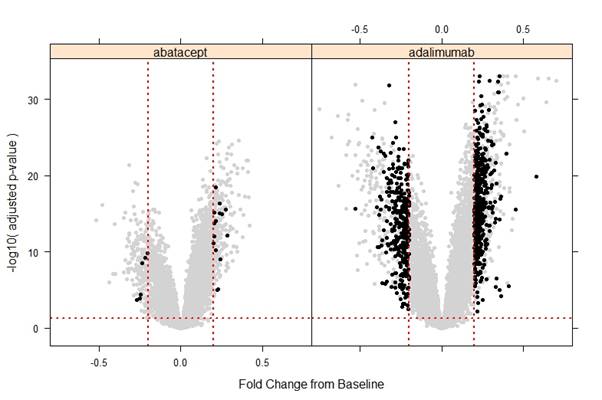Session Information
Session Type: Abstract Submissions (ACR)

Disclosure:
S. Bandyopadhyay,
Bristol-Myers Squibb,
3;
M. Maldonado,
Bristol-Myers Squibb,
3,
Bristol-Myers Squibb,
1;
M. Schiff,
Bristol-Myers Squibb, Abbvie,
5;
M. Weinblatt,
BMS, Crescendo Bioscience, UCB, Abbvie, Roche, Janssen,
5,
BMS, Crescendo Bioscience, UCB,
2;
R. Fleischmann,
AbbVie, Amgen, Astellas, Astra Zeneca, BMS, Celgene, Dynavax, Genzyme, Janssen, Eli Lilly, Merck, Novartis, Pfizer, Roche, Sanofi-Aventis, UCB, Xoma,
2,
AbbVie, Amgen, Astra Zeneca, BMS, Celgene, Janssen, Eli Lilly, Pfizer, Roche, Sanofi-Aventis, UCB,
5;
S. Connolly,
Bristol-Myers Squibb,
1,
Bristol-Myers Squibb,
3.
« Back to 2014 ACR/ARHP Annual Meeting
ACR Meeting Abstracts - https://acrabstracts.org/abstract/gene-expression-analyses-of-abatacept-and-adalimumab-treated-patients-from-the-ample-trial/
